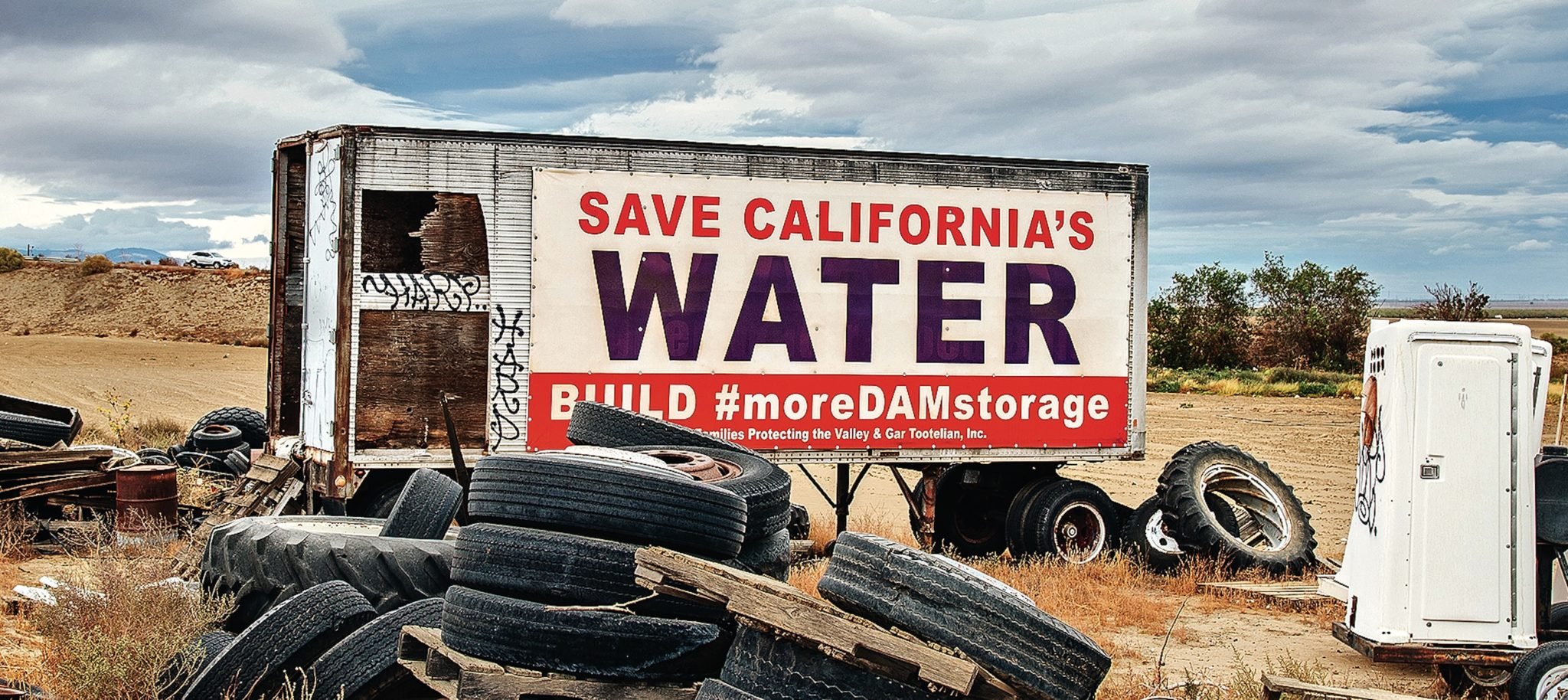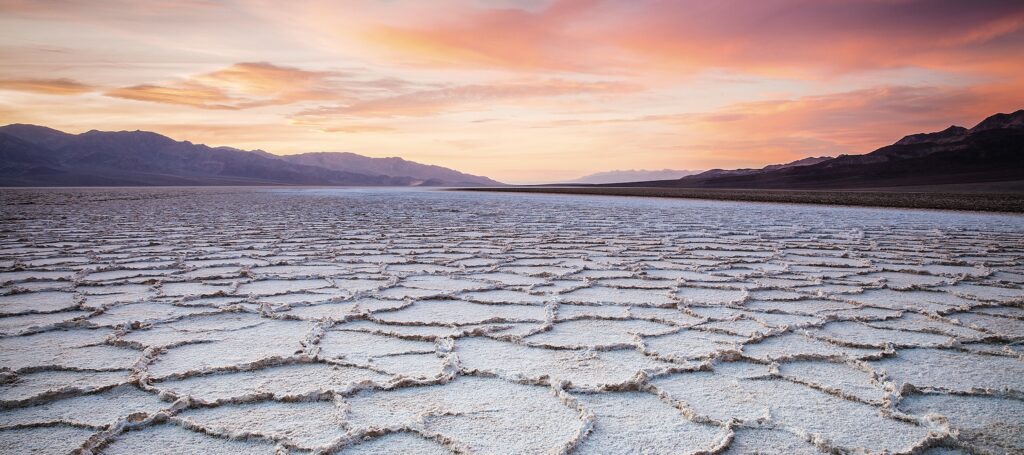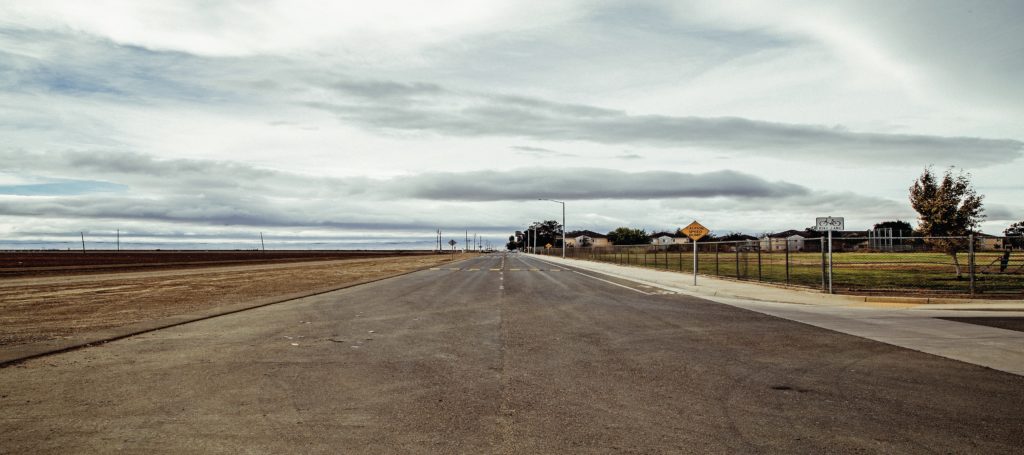For years, motorists driving I-5 through the San Joaquin Valley have been accosted by signs and billboards decrying a “Congress-created Dust Bowl” and bearing slogans like “Build #moreDAMstorage.”
But, as contributor Glen Martin reports in his dispatch, California’s water crisis is all-too-real and not likely to be alleviated by building new reservoirs or by changes in the political winds. A drier future for the state is all but assured as the planet heats up, periodic atmospheric rivers notwithstanding. New ideas will be needed if we’re going to keep the state’s agricultural engine humming.
Thankfully, solutions are at hand. While strategies like desalinating and recycling water and converting acreage to solar farms are already being deployed, they are just the beginning. Agricultural and resource economics Professor David Zilberman, Ph.D. ’79, calls the San Joaquin Valley “the perfect laboratory” for experimenting with radical new visions like solar-powered vertical farms growing crops that have been custom-engineered with CRISPR.
CRISPR is, of course, the gene-editing tool developed by Berkeley Nobel laureate Jennifer Doudna. As it happens, she was first turned on to the Clustered Regularly Interspaced Short Palindromic Repeats over coffee at the Free Speech Movement Café by another Berkeley scientist, Jill Banfield, whose own work has fundamentally changed and expanded our conception of life on Earth. Hope Henderson, Ph.D. ’19, profiles Banfield in “Rocking the Tree of Life.”
If there is a theme in this issue, it revolves around the life sciences at Berkeley and the leveraging of that science in the marketplace. We open with news of the Bakar BioEnginuity Hub (“Going Big on Bioscience”), an initiative housed in the old (and newly refurbished) Berkeley Art Museum that will host up to 80 new companies at any given time through its start-up incubator.
It’s something that biochemistry, biophysics, and structural biology Professor Robert “Tij” Tjian ’71 knows a thing or two about (“Fishing for Answers in Biotech”), having cofounded a couple companies of his own, including Tularik Inc., which was acquired by Amgen in 2004 for more than a billion dollars. Tij admits that his colleagues were less than enthusiastic about his early forays into the private sector, but he says attitudes are changing, with more students and young faculty wanting to go into the “translational side of things.” At the same time, he stresses that “Berkeley is different. We still strongly believe that fundamental discoveries are the best way to move technology forward, actually letting biology guide us.”
Berkeley is indeed different. Perhaps nothing in this issue illustrates that more succinctly than the story of the Cal men’s golf program. While the team has come to the world’s attention suddenly, thanks to the smash success of alumnus Collin Morikawa ’19, few are aware that the program that produced him lacks a home course or that it had been cut from Cal’s roster of varsity sports years earlier. Scott Ball, in “Cal’s Masters of Golf,” tells how the program scrounged resources and fought its way to prominence.
Of course, golf, with its lush greens and verdant fairways, may seem worlds away from the dusty almond orchards and sunbaked cotton fields of the San Joaquin Valley, but the sport, too, is having to adapt to warming with reduced irrigation, water recycling, and drought-tolerant varieties of grass. It will have to do even more if it’s going to survive into the next century.
As it happens, I’m writing this note in the midst of a climate summit in Scotland—where golf was born in the Late Middle Ages. The idea that the ancient sport now faces an existential crisis may sound alarmist, but then the facts are alarming. As William Collins, one of the many Berkeley scientists who authored the Intergovernmental Panel on Climate Change’s latest assessment, reminds us, “climate change is now” and the urgency to act is extreme. His colleague Charles Koven, Ph.D. ’06, says, “it can really only get worse.… The question is, how much worse are we going to allow it to get?”




















